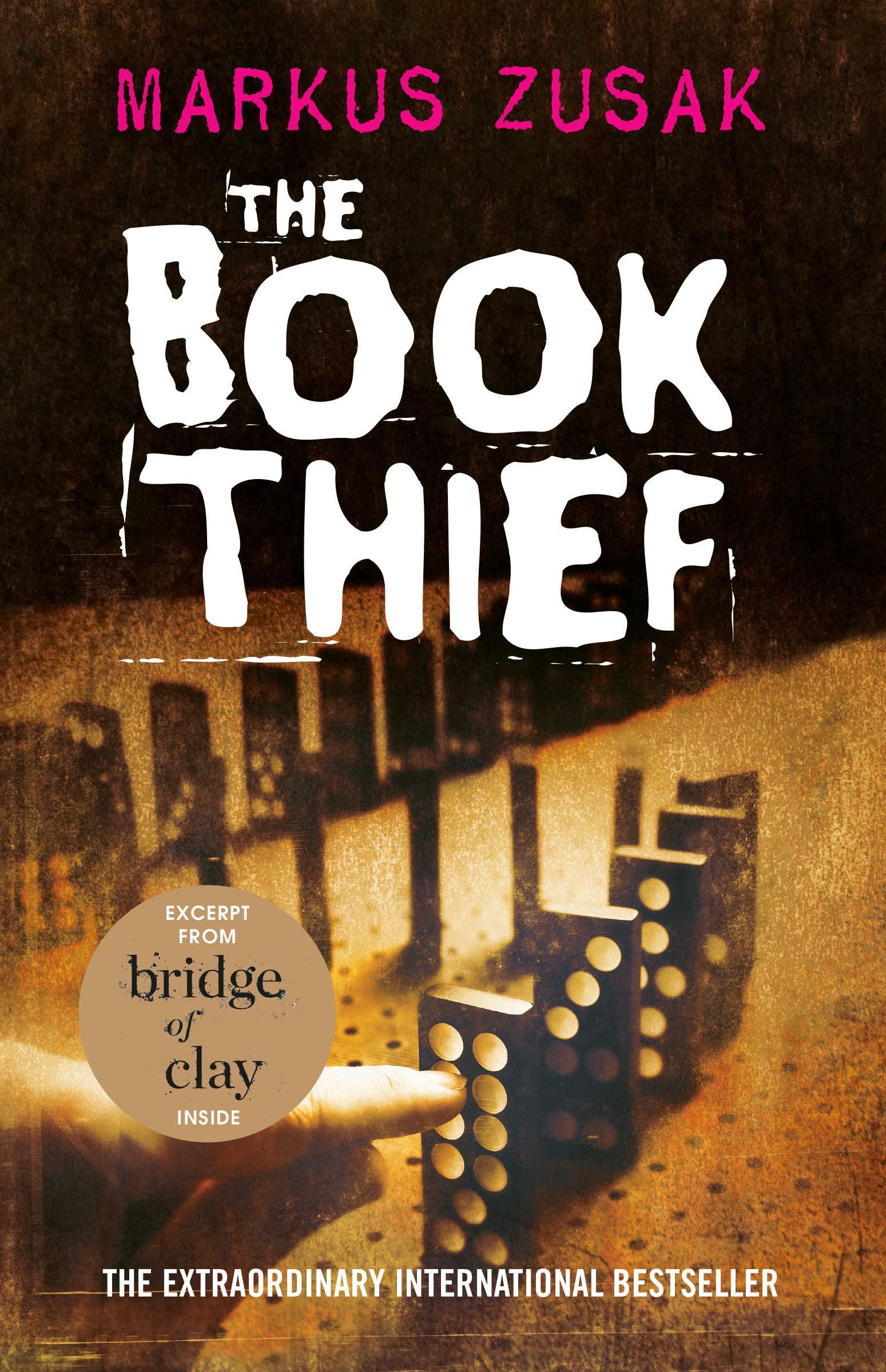The Book Thief
“I have hated words and I have loved them, and I hope I have made them right.”
Set in Germany in the years 1939-1943, The Book Thief tells the story of Liesel, narrated by Death who has in his possession the book she wrote about these years. So, in a way, they are both book thieves. Liesel steals randomly at first, and later more methodically, but she's never greedy. Death pockets Liesel's notebook after she leaves it, forgotten in her grief, amongst the destruction that was once her street, her home, and carries it with him.
Liesel is effectively an orphan. She never knew her father, her mother disappears after delivering her to her new foster parents, and her younger brother died on the train to Molching where the foster parents live. Death first encounters nine-year-old Liesel when her brother dies, and hangs around long enough to watch her steal her first book, The Gravedigger's Handbook, left lying in the snow by her brother's grave.
Her foster parents, Hans and Rosa Herbermann, are poor Germans given a small allowance to take her in. Hans, a tall, quiet man with silver eyes, is a painter (of houses etc.) and plays the accordian. He teaches Liesel how to read and write. Rosa is gruff and swears a lot but has a big heart, and does laundry for rich people in the town. Liesel becomes best friends with her neighbour Rudy, a boy with "hair the colour of lemons" who idolises the black Olympic champion sprinter Jesse Owens.
One night a Jew turns up in their home. He's the son of a friend of Hans from the first world war, the man who taught him the accordian, whose widowed wife Hans promised to help if she ever needed it. Hans is a German who does not hate Jews, though he knows the risk he and his family are taking, letting Max live in the basement. Max and Liesel become close friends, and he writes an absolutely beautiful story for her, called The Standover Man, which damn near broke my heart. It's the story of Max, growing up and coming to Liesel's home, and it's painted over white-painted pages of Mein Kampf, which you can see through the paint.
Zusak found a way to give a fresh approach to a much-told story. He offered a glimpse at the other side of the coin. Really, should we feel sorry for the people hiding in a basement in Munich suburbs? Sure, bombs are falling on their heads, but most of them are members of the Nazi Party, willingly or reluctantly. Some of them truly think that Jews are no better than rats. Some, on the other hand, are hiding a Jew in their own basement. Some are just innocent children. But the more important question is, are we any better at all if we don’t feel compassion and sorrow? Death does a great job of asking all these questions in a calm, unobtrusive way.
